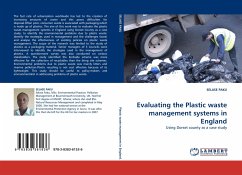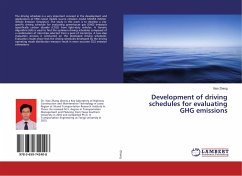This study examines the barriers to the past remediation methods used in the Niger Delta by the multi-oil companies and Nigerian government agencies, the range of impacts of oil pollution, including the environmental, health-related, and social effects of oil spills in water bodies, and the wider economic implication of oil exploration and exploitation vis-à-vis it's contributions to the conflict and unrest in the oil-producing areas of Niger Delta. Past remediation methods carried out in the region have been largely ineffective and inadequate, resulting in further contamination of the environment. To evaluate the best environmental technique(s), a comparison of the various remediation technologies (including the use of organic and inorganic sorbent materials, booms and skimmers, underwater and surface dispersants, and bioremediation) was carried out using PEST and SWOT analysis tools.
Bitte wählen Sie Ihr Anliegen aus.
Rechnungen
Retourenschein anfordern
Bestellstatus
Storno








